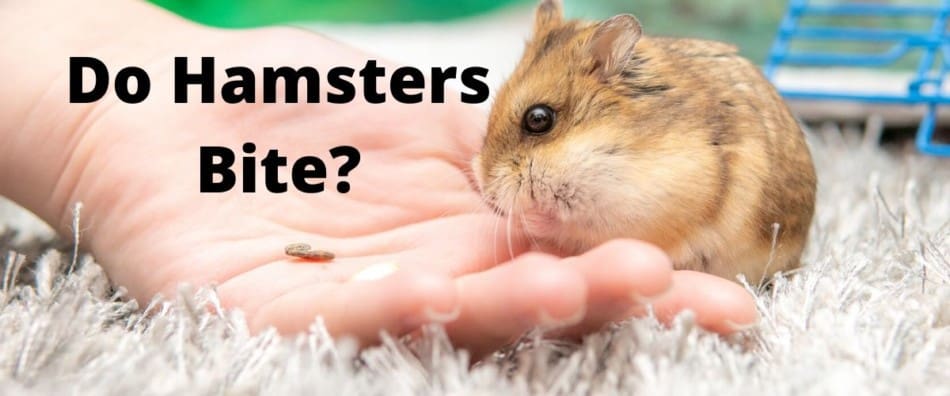Sadly, hamsters do sometimes bite; but this is only when they are feeling stressed, scared, or territorial. Biting is a defense mechanism, and hamsters are actually quite gentle by nature.
To avoid being bitten by your hamster, you must make sure that they feel content, and safe. This is easy enough… all you need is a little know-how!

Table of Contents
Why Do Hamsters Bite?
The hamster is a rodent that is round, fuzzy, and quite small. They have a short, rabbit-like tail. Hamsters are a popular pet because they are so very cute, and docile and interactive as well.
When you hold them often and respectfully, your hamster may even come to enjoy touch and a good cuddle. Hamsters are also bright and playful. What’s not to love?
A hamster will not normally bite. However, there are some things that can trigger the response. They will bite when they are feeling threatened or uncomfortable in some manner, or are sick. This is a defense mechanism that is quite natural.
They will most often bite out anxiety or fear. Or, with other hamsters, because they are feeling territorial. To avoid being bitten by your hamster, there are a few key steps you can take!
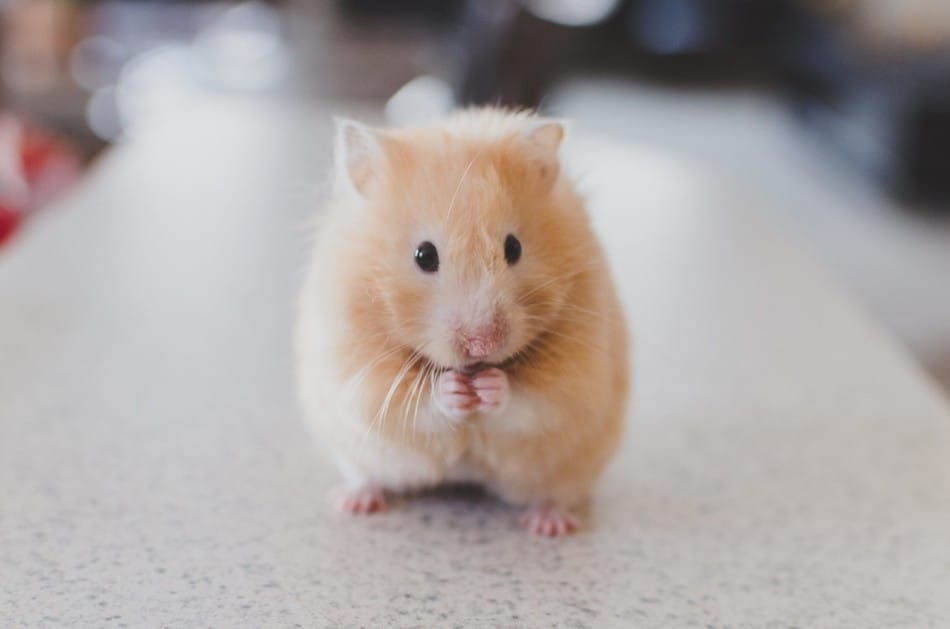
Provide Your Hamster With A Calm and Secure Home
In the wild, a hamster will build a burrow. This is an underground tunnel system that includes a steep entrance (to discourage predators), an area for nesting and hoarding, and a waste area, as well.
This burrow is where they will spend a great deal of their time. During the day, hamsters will use the burrow to hide from hawks, lizards, and the like. When it is too hot, they can go into their shady burrow to cool off.
Spook a wild hamster, and they will quickly disappear into a hidden entrance to their burrow!
So, you can see the importance of a burrow. You should try to mimic this as best you can at home, with a sturdy cage, a quiet, temperature-controlled location, and more.
A calm and secure home will make your hamster less likely to bite, by allowing them to feel safe and relax.
So, what does a calm and secure home entail? First off, a calm environment is one without too much noise.
This will overstimulate your hamster and make them unable to relax. Your hamster should be kept in a private, quiet room (where they can still socialize).
Next, your hamster will need a cage that is nice and secure. This will prevent them from escaping and getting lost, as well as provide some defense against pets, small children, and the like.
The best cage you can get is one with bars or mesh made of metal. This is one of the few materials these fellows are unable to chew.
Your hamster will also appreciate a little house inside of the cage. You can make one of these out of an old, plastic butter container or a small cardboard box (or buy one online).
Outfit the cage with aspen, paper, or another hamster-safe bedding, to mimic the cozy nesting in their burrow.
Give Your Hamster The Personal Space They Require
Hamsters prefer to live alone. In fact, when caged together, hamsters will almost certainly fight, as they are extremely territorial. Living with other hamsters can put your hamster into a constantly stressed-out and angry state. When they are feeling this way, they are much more likely to lash out and bite.
Give your hamster a roomy cage that is all their own. The common Syrian hamster will need a space that is at least 1 by two feet, ideally more.
Do not allow any pets in the area, especially predatory ones like dogs, cats, ferrets, and the like.
Grant your hamster plenty of time to do their own thing, and socialize with them every once in a while. While they do like to socialize with human friends, they will also need a break.
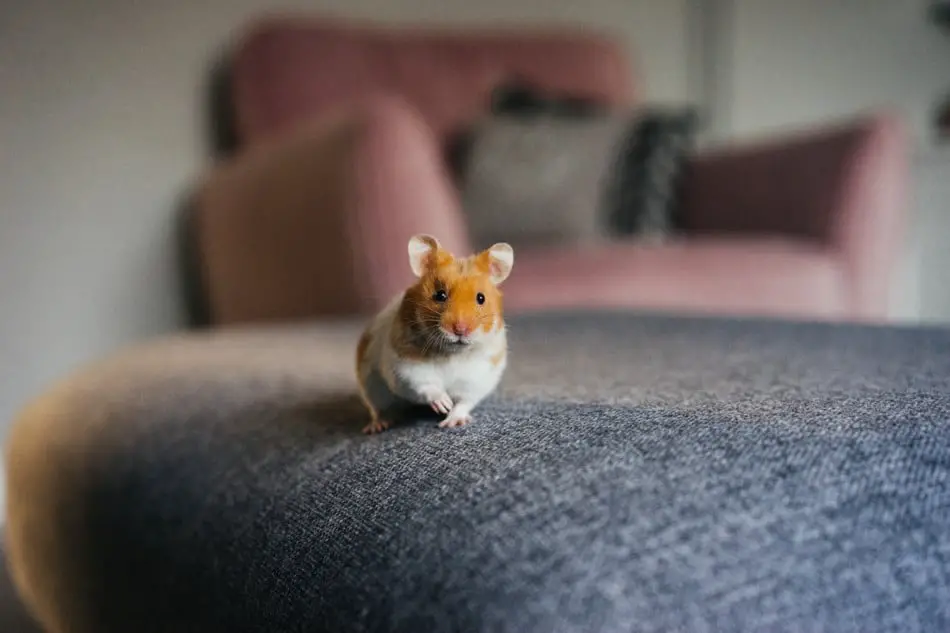
Make Sure Your Hamster Stays Active
In the wild, hamsters spend their time foraging, burrowing, evading predators, breeding, and more. They have lots of energy and need to stay active!
Hamster Activities In The Cage
Every hamster should have a good wheel. This will allow them to get at least some exercise, no matter where they are. The best exercise wheel is one that is made from hard plastic or metal.
This will discourage them from giving it a chew. The surface of the wheel should be flat, with no rungs (they can get stuck).
Hamsters also enjoy tunnels made from paper towel rolls, houses made from butter containers or cardboard boxes, and so on. You can even maximize the space with ramps; just make sure their surface is suitably flat, and that they are safely down low.
Letting Your Hamster Our of Their Cage
Of course, no animal should be in a cage for every moment of their life. Your hamster should also be let out every once in awhile, so they can burn restless energy and explore. Just make sure that the area is hamster-proof.
Indoors, you will need to block off any holes or exits your hamster might use to hide or escape. Some have even found their way into the wall. Be careful!
Inform the household not to open doors, or let any other pets in. Put away human food and potted plants they may sample, and stow away cords they could chew.
Your hamster can run around and get their wiggles out, now that the room is secure! Some great activities to do together are find-the-treat, where you hide treats in (safe) spots for your hamster to discover; treat-on-a-string, where you drag a treat for them on a string (some will give chase); and you can even build them a maze, which they often find fun because it reminds them of traversing a burrow.
Outdoors, you will need to use even more care. A large playpen or enclosure is recommended, to prevent your quick hamster from running off.
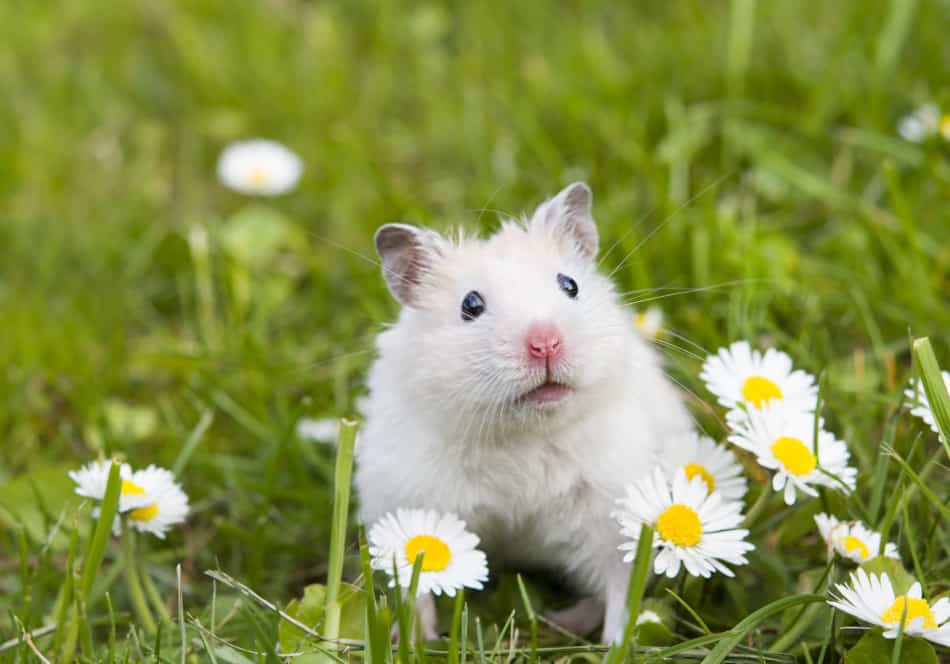
Do not allow your hamster to get into potentially toxic plants in the garden, weeds in the grass, etc.
Your hamster should never be outdoors in weather that is excessively hot or cold, as they are temperature-sensitive.
Keep an eye out for neighborhood pets and other potential predators that could prove a risk.
Once you are certain that you have your hamster in hand, you can let them enjoy a bit of fresh air and sunshine. They are sure to appreciate this, and will likely begin to play and frisk!
Feed Your Hamster Properly and Well
Hamsters must be fed every day! Their diet should consist primarily of moderate-to-high quality pellets, from the pet store or online.
Your average hamster will require 1-2 tsp of pellets per day. Without this, they will feel very hungry, and their energy levels will drop low.
The temperament of your hamster is sure to be affected when they feel this unhappy and unwell. Food is also emotionally very important to them.
In the wild, hamsters will dutifully store extra food, so that they will not have to go without when it is less plentiful. This is a big part of how they survive, and key to them feeling secure.
Here are 5 Recommend Hamster foods





A hamster will quickly become anxious and stressed without their daily meal. As a result, they may become more likely to bite. So, as you can see, it is really in the best interest of both you and your hamster to make sure that they are fed properly!
To delight your hamster, and help them warm up to you, you may also offer them a treat or snack! The best choices are certain, hamster-safe fruits, like blueberries, strawberries, raspberries, and the like. Many tree fruits, like apples, are also okay (be sure do double check).
You can also offer your hamster veggies like romaine lettuce, carrots, bok choy, cucumber, and more.
Make Sure Your Hamster Is In Good Health
Your hamster may be biting because they are feeling cranky and sick. Signs of illness in hamsters include lethargy (inactivity), lack of appetite, discharge from the eyes and nose, an unkempt coat, weight loss, diarrhea, hair loss, and the like.
Should your hamster exhibit any of these symptoms, you will want to take them to the vet right away. Their health can all-too-easily go downhill.
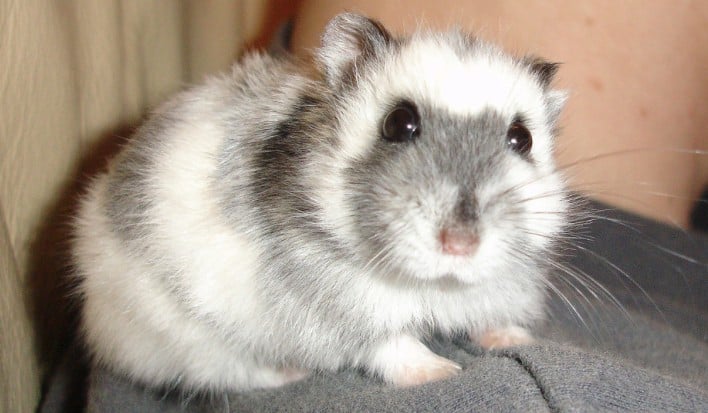
Befriend Your Hamster With Care
To befriend your hamster, you will need to use due care. They are prey animals, so they are shy by nature.
They will easily see things as a threat or risk. When it comes to earning the trust of your hamster, gentleness is key! The following are a few tips that you may find helpful:
- Wash your hands. Did you know that hamsters have poor eyesight? Because of this, they rely heavily on their sense of smell. Your hamster may not know you if your scent is unfamiliar. As a result, they may bite in self-defense. Wash your hands before interacting with your hamster to help eliminate this risk.
- Speak quietly. Along with their keen sense of smell, hamsters have a sense of hearing that is even more impressive. They can make sounds beyond human perception to communicate with each other. This in mind, you will want to speak to your hamster softly. Otherwise, you can startle them and make them uncomfortable.
- Use treats as a bribe. Hamsters are little foodies and treats will encourage them to interact with you, and see socializing as positive.
Conclusion: Do Hamsters Bite?
So, as you can see, there are some things that can cause your hamster to bite: stress, hunger, and confusion, to name a few. To discourage this behavior, all that you have to do is make sure that the needs of your hamster are met properly. This will help them to feel safe, happy, and peaceful. Then they should not feel any need to bite at all!

